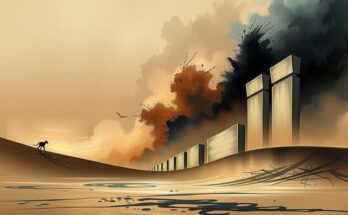Iran is set to receive a letter from Donald Trump regarding potential talks about its nuclear program. Trump’s approach involves a call for negotiations or face military options. However, Iran has rejected discussions under the “maximum pressure” policy following the reinstatement of sanctions after Trump’s 2018 withdrawal from the nuclear deal. Ayatollah Khamenei continues to resist such negotiations, pointing to the dominance sought by the U.S.
Iran has announced that it will soon receive a letter from former President Donald Trump. However, specifics regarding the identity of the Arab nation involved or the timeframe for the letter’s arrival remain undisclosed. Trump indicated that he wrote to Iran’s Supreme Leader, Ayatollah Ali Khamenei, proposing discussions to create a new agreement on Tehran’s nuclear program, while also alluding to a possible military response if negotiations do not take place.
In response, Iran has firmly dismissed the possibility of dialogue under what it perceives as a “maximum pressure” strategy implemented by Trump upon his return to office in January. This strategy includes Trump’s withdrawal from the Iran nuclear agreement in 2018, subsequently reinstating stringent sanctions against the nation while also introducing additional penalties.
In February, Khamenei advised against engaging in negotiations with the United States, emphasizing the detrimental impact of Washington’s exit from the nuclear deal. Recently, he criticized the coercive approaches adopted by certain governments, which prioritize negotiations aimed at asserting control rather than genuinely addressing existing issues.
Iran remains resolute in rejecting negotiations with the United States, particularly in light of the pressure tactics employed by the Trump administration. The recent letter from Trump, aimed at proposing discussions regarding Iran’s nuclear program, has yet to elicit a willingness to engage from Tehran, underscoring the complexities surrounding diplomatic relations. The continued emphasis on sanctions and the reluctance to negotiate from the Iranian leadership reveals deep-seated tensions that remain unresolved.
Original Source: m.economictimes.com




